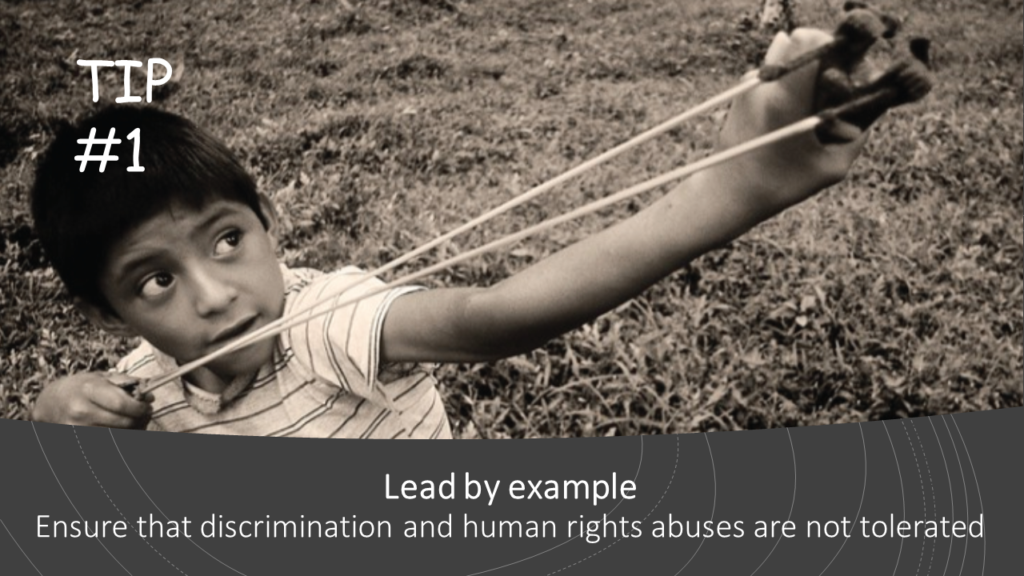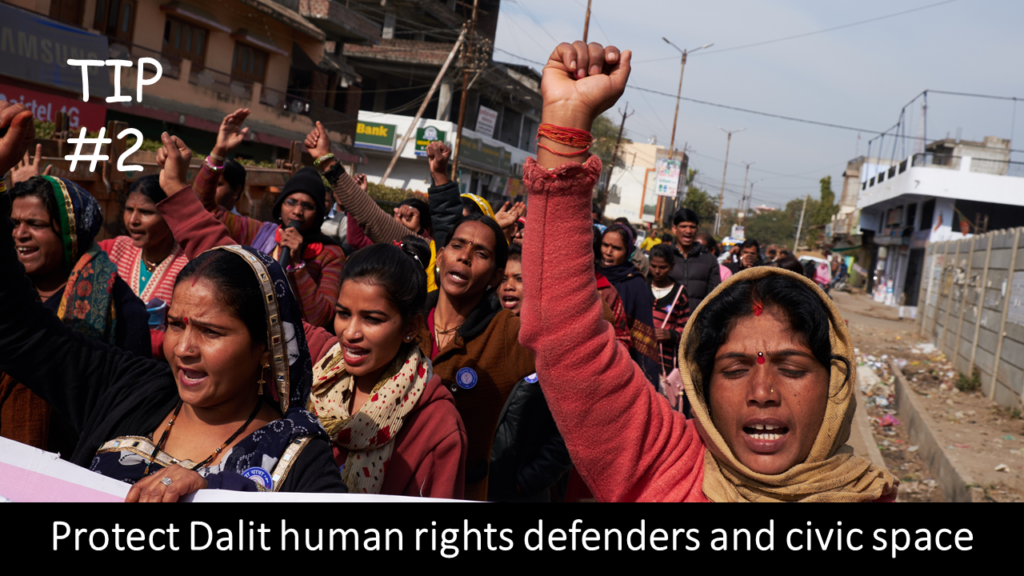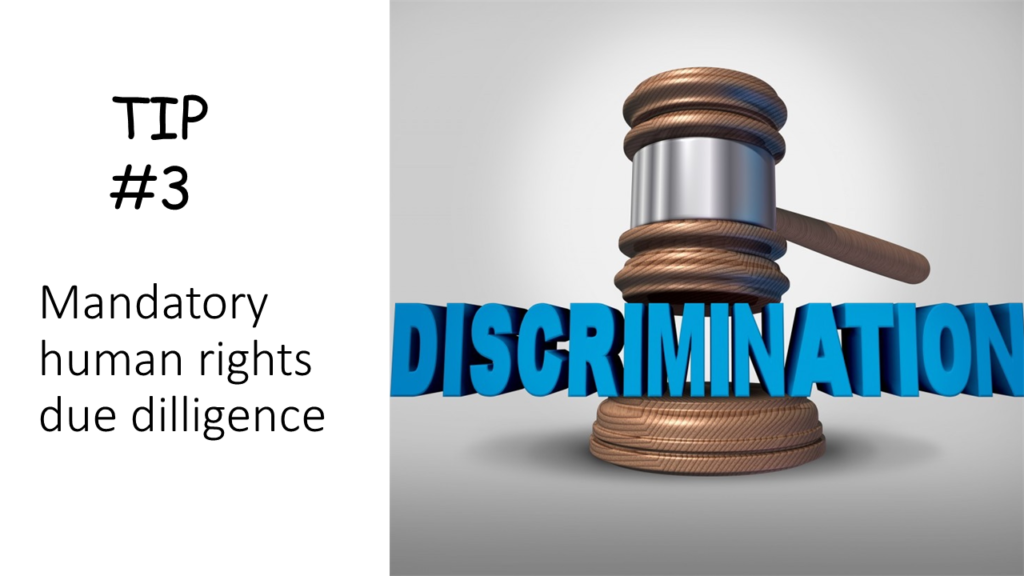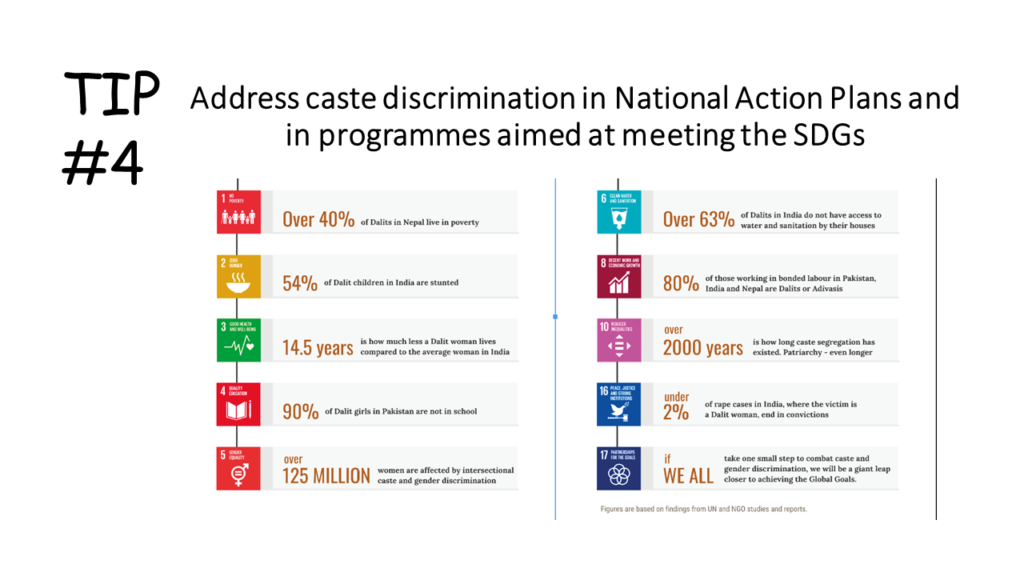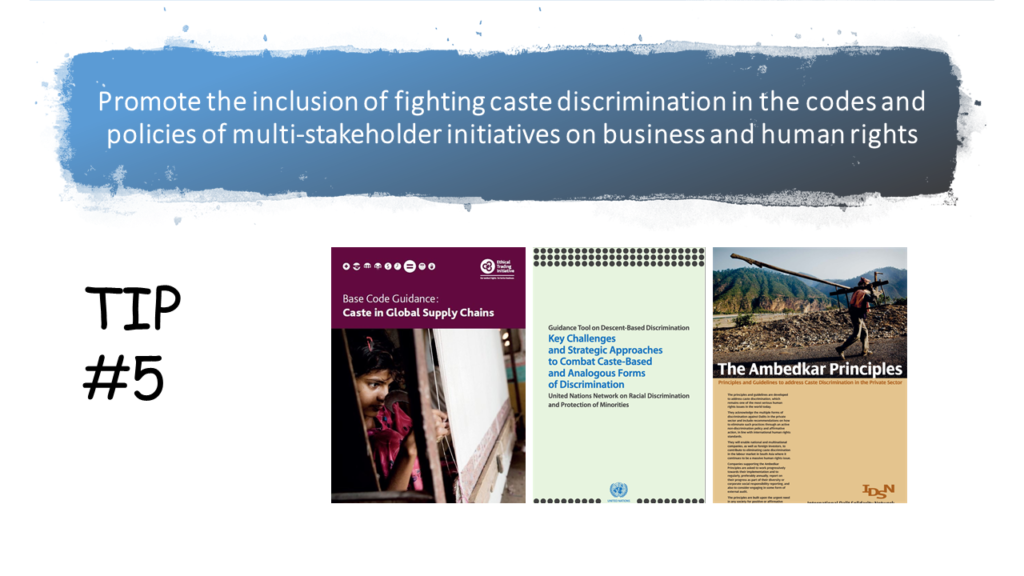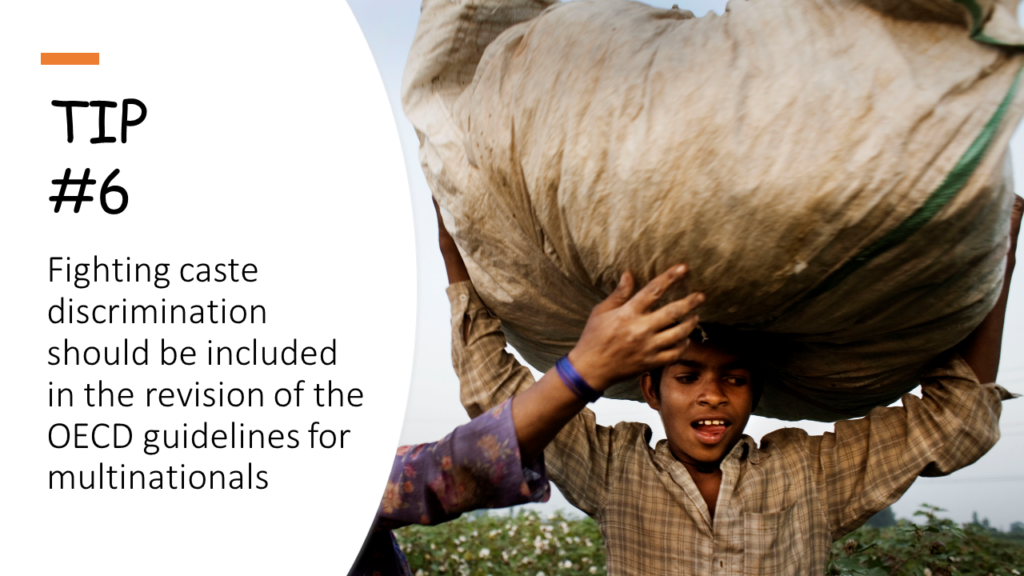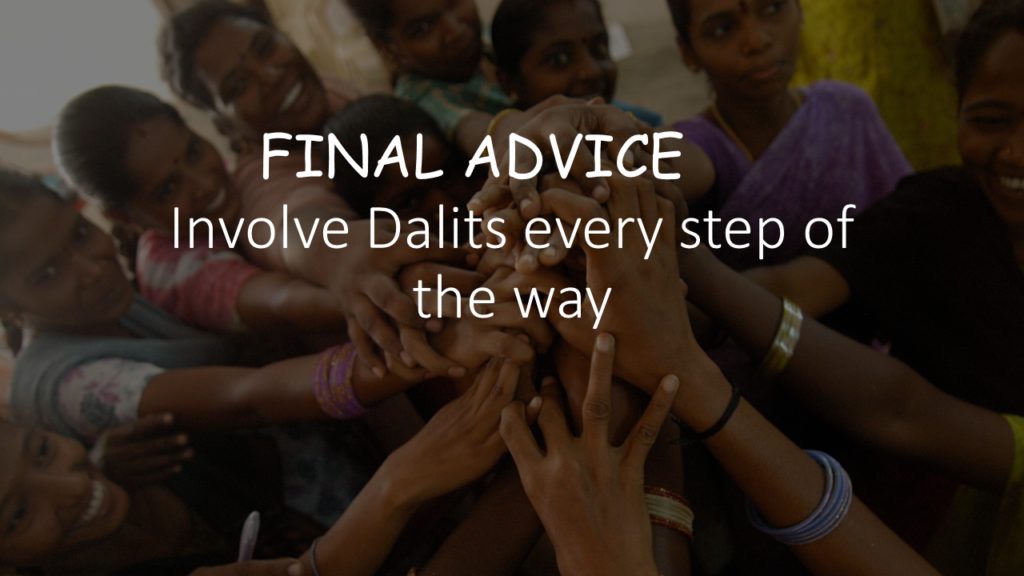IDSN set its mark on the UN Business and Human Rights Forum with a very popular stand, highlighting the links between caste and human rights violations in global supply chains and the IDSN Director gave a snapshot presentation on what Governments can do to start addressing these issues with businesses.
The IDSN stand was open for three days at the forum in the Palais des Nations in Geneva, and by the end of the first day 70 copies of the new ETI-UK/IDSN Guidance on Caste in Global Supply Chains had already been picked up by participants, eager to learn more.
At the stand Dalit human rights defender Ankita Paudel from IDSN member organization, Feminist Dalit Organisation – Nepal (FEDO), and IDSN staff, spoke with participants to improve their understanding and urge them to take action. Ms. Paudel also took part in key events at the forum and made connections with other relevant stakeholders.
In this video Ms. Paudel reflects on her participation and stresses the importance of the exchanges with other participants at the forum and how she will take the new insight gained at the Forum back to her organization in Nepal to improve the understanding of business and human rights.
IDSN Ambassador, Gerard Oonk, business and human rights expert, also formed part of the IDSN delegation, participating in advocacy and networking to increase the visibility and impact of IDSN’s work to address caste-related human rights issues in business supply chains.
The IDSN Director, Meena Varma, also took part in the forum and had been selected by the organisers of the forum to give a snapshot presentation on what Governments can do to address caste-based human rights abuses in business operations in their countries. Below you can see the slides of the seven tips she gave here:
Meena Varma’s 7-minute presentation included seven tips for Governments:
Read and share tweets from the forum:
Attending the #UNForumBHR. Reflecting upon caste, business and human rights concerns. @idsnupdates
— Ankita Paudel Bishwakarma (@ankita9166) November 26, 2019
Protecting human rights defenders is not an option, its an obligation of the state -M.Forst #UNForumBHR @idsnupdates
— Ankita Paudel Bishwakarma (@ankita9166) November 26, 2019
#UNForumBHR watch IDSN’s snapshot on webcast https://t.co/G84ndaYVJI #nocasteleftbehind @ethicaltrade @WGBizHRs @DalitRights @dalitwomenfight
— IDSN (@idsnupdates) November 27, 2019
Time to act: caste in global supply chains at the #UNForumBHR @WGBizHRs pic.twitter.com/gwFXOvNdOj
— IDSN (@idsnupdates) November 27, 2019
“Caste discrimination is the single biggest enabler of Kanpur exploitation and modern slavery in all of South Asia.” @Anti_Slavery @ethicaltrade @WGBizHRs @DalitRights @dalitwomenfight pic.twitter.com/IqvbcDmLiQ
— IDSN (@idsnupdates) November 27, 2019


